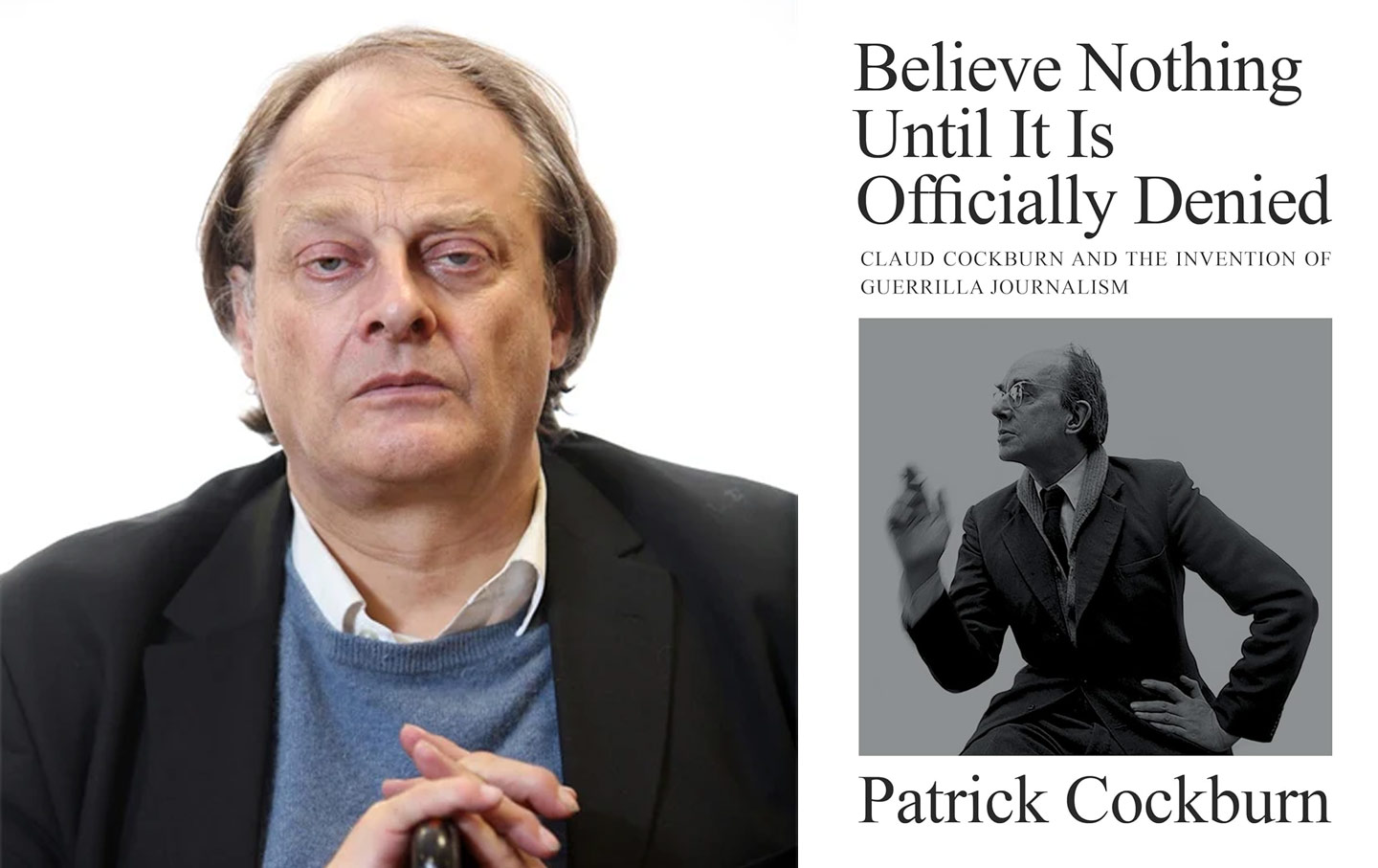January 2, 2025
Newly released classified documents show the National Security Agency knew Ethel Rosenberg wasn’t a spy, and the government executed her anyway.
Seventy-five years ago, Julius and Ethel Rosenberg were arrested and charged with conspiracy to commit espionage. During the trial the following year in 1951, presiding judge Irving Kaufman said: call their behavior Giving secrets to the Soviet Union was “worse than murder.” Despite a worldwide campaign for clemency, the Rosenbergs were executed at Sing Sing Prison in 1953. American society was deeply divided among detractors who believed their rebellion amounted to (in the words of FBI Director J. Edgar Hoover) the “crime of the century.” ” and its supporters were convinced that they were innocent victims of Cold War hysteria. Since 1953, the Rosenberg case has haunted generations of Americans, leading to heated debates over guilt or innocence.
The “Venona” cables, declassified and released in 1995, highlighted Julius’ role. venona project Intercepted and translated top secret coded messages between Moscow and KGB stations abroad. The Telegram revealed that Julius ran a spy ring in New York in the 1940s. However, important new evidence has been discovered. It’s a previously classified document released by the National Security Agency (NSA) in August 2024. It is dated August 22, 1950. memo From the senior code breaker of the Venona project, Meredith GardnerEthel concluded. do not have spy.
Historians and commentators remain polarized over Ethel’s responsibility. For Emory University historian Harvey Clair, 2021 essay “The Eternal Return of Ethel Rosenberg” concludes the case by asking, “Why did the myth of her innocence become so divorced from the evidence of her guilt?” Even though she was wrongly executed, Ethel was justly convicted, which her lawyers rejected. Please face the facts. Clair agreed with Jonathan Brent, director of the YIVO Institute for Jewish Studies. claimed The “myth” [of Ethel’s innocence] “Myths are not dependent on evidence; myths are a matter of belief beyond evidence.…Evidence is not important to people who are true believers.”But evidence is important to me. And the evidence points to Ethel’s innocence.
Only two references to Ethel have been deciphered in the Venona Telegram. The first was September 21, 1944. cable From the New York KGB station: [Rosenberg] and his wife recommended her [Ruth Greenglass, Ethel’s sister-in-law] She’s an intelligent, smart girl,” and her apartment could be used as a safe home. The second was November 27, 1944. cable Ethel’s profiling – importantly, she was identified by name and was never assigned a codename, which was customary for both sources and agents, but which included “her husband’s “I know about work” (“work” clearly alluding to espionage), but added: The view about her delicate health condition does not work. ” This was shared with the FBI in 1948. In short, while Ethel was certainly aware of Julius’ activities and perhaps shared recommendations, the Venona telegram confirms that she was at best a peripheral figure in his spy organization.
The significance of Gardner’s 1950 memorandum is that it further exonerates Ethel from active involvement in undercover operations. Most of the decoding of Venona was completed between 1948 and 1949, and the memorandum assessed what the decoding meant. Given Gardner’s important role in the project, his opinion was authoritative. His memo reviewed findings on the Rosenberg network under the heading “Nuclear Espionage Spy Ring.” Section 5 examined the authenticity of the November 1944 cable. “Mrs. Rosenberg was a party member and a devoted wife, and although she was aware of her husband’s work, she did not undertake it herself for health reasons,” he said. It is clear what Gardner meant by “work” here: Julius’s involvement in espionage.
Gardner wrote the memorandum in 11 days. rear Ethel was arrested. He worked closely with the FBI, and the importance of the case makes it almost certain that J. Edgar Hoover was informed of this and probably influenced Hoover’s April 1951 case. It seems. recommendation Opposed to Ethel’s death sentence. The evidence too conspiracy Espionage, as charged, was too frivolous. That the FBI knew this is confirmed by an internal FBI memo dated July 17, 1950, the day of Julius’ arrest. The bureau reported that it received a recommendation from the Justice Department’s Criminal Division that there was “insufficient evidence to file a lawsuit.” [Ethel] At the moment. “Instead, as is now well known, she was to be used as a ‘lever’ (Hoover’s term) against her husband to extort confessions and implicate accomplices.
Latest issue

But she refused to budge (“She said we were bluffing,” said Deputy Attorney General William Rogers). new york times reporter Sam Robertsauthor of the book about Ethel’s brother David Greengrass) and her silence sealed her fate. If her brother had not struck a deal and lied in court to avoid his wife’s prosecution, Ethel would have avoided the death penalty. However, once the verdict was handed down, she was left with Hobson’s only choice: to disown Julius or accept death. President Eisenhower refused a pardon. I believed “She was clearly the leader in everything they did in the spy organization.” He was wrong. Weinstein and Vasiliev They concluded that “she was, at best, a supporting character,” which would have resulted in a short prison sentence and “probably not have led to her arrest” had it not been for the escalation of the legal and political atmosphere. There is. Furthermore, as the NSA and FBI have concluded, knowledge and knowledge do not equate to active collusion or conspiracy. There was no conclusive evidence.
My intent here is not to review the well-known grounds of prosecutorial and judicial misconduct or Greengrass’ perjured testimony during Ethel’s trial. Suffice it to say, forensic science. analysis Five legal scholars who reviewed her indictment and conviction said the FBI knew from the beginning that the case against her was difficult and “too weak to justify an arrest, let alone an indictment,” but David concluded that he had pressured Ruth Greengrass to “remember.” — now we know by mistake — Ethel is typing a note for Julius. Their testimony was crucial to Ethel’s conviction. david common man Admission fee Roberts’ verdict and unsealing of Ruth’s grand jury in 2001 testimony In 2008, the former’s perjury and the latter’s contradictions were confirmed. A flagrant miscarriage of justice occurred.
So why do some historians claim that Ethel’s innocence is a myth “separated” from conclusive evidence of her guilt? Their argument rests primarily on two sources. I am. One is a fragmentary decryption of Venona, the other is a transcribed notebook smuggled out of Moscow by a former KGB operative and journalist. Alexander Vasiliev. Supporters of the position that Ethel was acting as a spy rely heavily on the events of September 21, 1944. cable (cited above). Three words are central to their claim that Ethel was involved in the conspiracy: “and his wife.” However, the first half of the telegram said that Julius was the only one recommending Ruth “with a view to a safe apartment.” Vasilyev transcribed this same cable as “‘Liberal’ recommended Ruth Greengrass,” but made no mention of “his wife.” A November 14, 1944 cable He said Ruth was directly involved and that she “agreed to help bring us on board.” [David]”—but again, there is no reference to Ethel.
2nd generation Venona cable The reference to Ethel (New York to Moscow, November 27, 1944) is a response from the New York station to the Moscow center requesting information about Ethel, but Ethel was not informed. So I saw her profile and the reply “Didn’t do the job”. We must recall the extremely important fact that, in contrast to other specific members of the spy group, this cable did not contain a code name. And remember, to commit the crime of conspiracy, you must participate in at least one overt act in furtherance of the conspiracy.
If Venona’s code-breaking fails to implicate Ethel, is there a wealth of evidence? claimedfrom the Soviet archives thanks to Vasilyev? Clair and Mark Kramer claim that Vasiliev’s documents “show that Ethel suggested that Julius could recruit others to hand over classified information.” However, after thoroughly examining the eight notes No such evidence has been obtained, and there is no mention of it in the exhaustive documents of Haynes, Clare, and Vasiliev. Spies: The Rise and Fall of the KGB in America. The inference that she “suggested” the name to the KGB is unfounded. There is no extant evidence that there was any connection with Soviet agents. Indeed, Julius’ Soviet handler from 1944, Alexander Feklisovclaimed that not only had he never met Ethel, but that she was “totally innocent” and had nothing to do with espionage.
The case did not end with Ethel’s guilt, as has been claimed, but Gardner’s memorandum pardons her, as the FBI knew at the time of her execution. Now is the time to right historical injustices. Now is the time for Joe Biden to grant Ethel Rosenberg a full acquittal, or at least a presidential pardon. Thereby truth and justice will be served.
See more nation

The complaint revisits the same gaslighting tactics used in the Amber Heard case, with similar effects on social media.
Ray Epstein

Technological advances are transforming healthcare, but they may also be reducing doctors’ creativity.
Zoya Qureshi

A crucial 11th game dispatch in Singapore that made Gukesh Donmaraju an 18-year-old chess champion.
JC Hallman

Patrick Cockburn discusses his new biography about his father Claude with his niece Laura Flanders.
Q&A
/
Laura Flanders

A case just added to the high court’s docket deals with the question of whether Medicaid can be used to pay for the services of health care providers who also perform abortions.
Ellie Mystal





